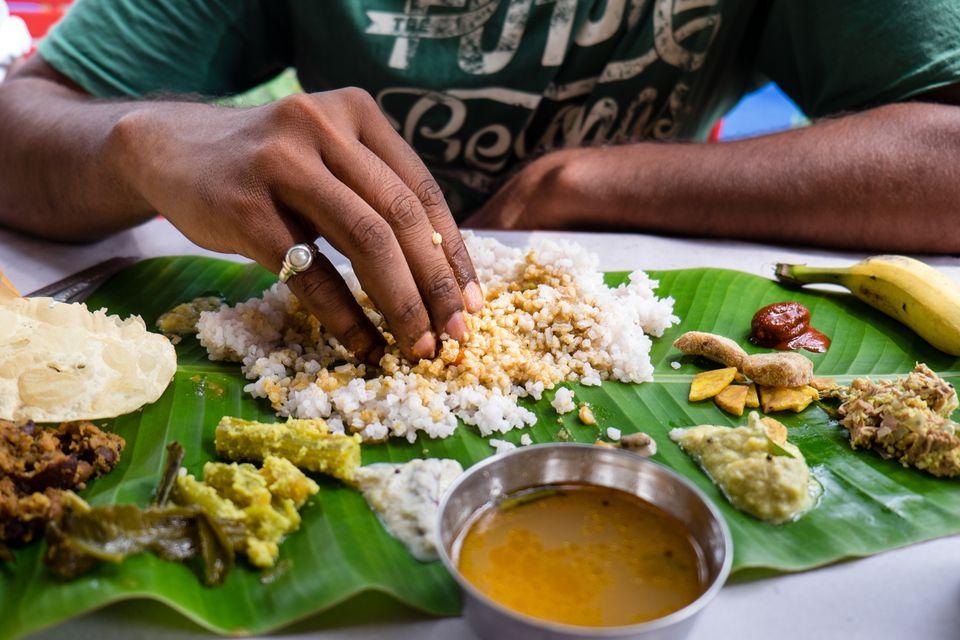
5 Traditional Indian Rice Varieties
Naturally YoursShare
Indians and rice are actually synonyms. Every Indian state has its own rice variety which is native to it and there is certainly a local delicacy made from it. On a recent visit to north east i visited a museum where over 100+ ingenious traditional rice varieties was on display. This was just from one region in one state!
India is a rice country, in fact we had over 100,000 rice varieties in the not so long ago (think 1970s). Then came along green revolution and the idea of mono cropping and with that it destroyed most rice varieties. Today about just under 6000 varieties have survived in India.
Saving our diversity of rice is not only important from a traditional point of view but also from a environment point of view. A lot of these ingenious varieties of rice have adapted over centuries to the kind of soil and the climate around them. For example the Forest Elephant rice is traditional grown in areas where it is prone to floods. The high grass of this variety helps it survive the floods.
Lets have a look at 5 Delicious Traditional Indian Rice Varieties You Should Try Today!
1.JEERA SAMBA RICE
Jeera rice also known as “Jeeraga Samba” rice is an heirloom variety which is traditionally grown in Tamil Nadu.It is an aromatic rice that resembles the seeds of jeera / cumin. Traditionally, it is used in the preparation of biryani, and Tamil Nadu favorites like the tomato rice, lemon rice and tamarind rice.
Health benefits of Jeera Samba Rice :
1. This grain is known to be rich in fibre and vitamins.
2. When consumed regularly it is known to increase hemoglobin levels and improve immunity.
How to cook Jeera Samba Rice:
Step 1: Add 2 cups of water to 1 cup of rice.
Step 2: Cook in a pressure cooker for 3 whistles
Step 3: Simmer for about 5 minutes in low flame.
Step 4: Fluff and Serve Hot
ProTip: Jeera Samba Rice being an aromatic short grain rice variety can be used to make South Indian Ambur Biryani.
2.AROMATIC BROWN RICE (ILUPAIPOO SAMBA RICE)
Aromatic Brown Rice or Ilupaipoo (pronounced as ILU – PAI –POO) Samba is an heirloom variety of rice traditionally grown in Tamil Nadu.
This variety of rice has the fragrance of the ilupai poo/Bassia Latifolia flower. When consumed regularly it is known to reduce joint pains.
Health benefits of Aromatic Brown Rice (Ilupaipoo Samba Rice)
1. Rich in fibre and vitamins
2. Known to increase hemoglobin levels and improve immunity
3. Effective for reducing joint pains
How to cook Aromatic Brown Rice (Ilupaipoo Samba Rice):
Step 1: Add 2 cups of water to 1 cup of rice.
Step 2: Cook in a pressure cooker for 3 whistles
Step 3: Simmer for about 5 minutes in low flame.
Step 4: Serve Hot
3.BLACK RICE
This rare and exotic variety of rice is popularly grown across India. Popularly grown in Tamil Nadu, Orissa and the North East. It extremely rich in minerals and is high in dietary fiber.
Health benefits of Black Rice
- It is low in fat, rich in fiber, full of protein and antioxidants, with essential vitamins and minerals.
- It contains anthocyanin antioxidants which also help to protect the body from heart disease and certain types of cancer.
- Black rice is also digested at a slower rate due to its fiber content and this means that the foods stays in the stomach for more time. This helps to reduce hunger pangs.
How to cook Black Rice
Step 1: Add 3 cups of water to 1 cup of rice.
Step 2: Pressure cook for 6-8 whistles
Step 3: Simmer for 20-25 minutes on low flame.
Step 4: Serve Hot
4.FOREST ELEPHANT RED RICE (KAATUYANUM RED RICE)
Kattu Yanam is an indigenous red rice variety traditionally grown in southern India. It is an extremely tall variety. The height of this variety can even hide wild elephants when they enter the farm and for this reason it is called as “Kattuyanam” (meaning wild elephant in Tamil).
Health benefits of Forest Elephant Rice
- High fibre content
- Good source of Vitamin B
- Ideal for diabetics since it is has a low Glycemic Index and low carbohydrate content.
- Good source of Iron, Manganese and zinc
- The anthocyanin present in this rice helps to reduce and control cancer cells
- The anthocyanins also delay skin ageing
- The minerals present in Kattuyanam rice helps to accelerate wound healing
How to cook Forest Elephant Rice
Step 1: Add 3 cups of water to 1 cup of rice.
Step 2: Pressure Cook for 6-8 whistles
Step 3: Simmer for 15 mins & Serve Hot
5.MAPILLAI SAMBA RED RICE
Mapillai Samba is an indigenous variety of red rice, grown predominantly in Tamil Nadu. The name can be translated as “Bride Groom Rice”
“Mappillai Samba” was often cooked and served to newlywed bridegrooms during traditional Tamil weddings.
Health benefits of Mapillai Samba Red Rice
- High fibre content present in the rice boosts digestion.
- The vitamin B1 present in the rice aids in healing stomach and mouth ulcers.
- Improves immunity and stamina
- Strengthens muscles and nerves
- Good source of Iron and zinc
How to cook Forest Elephant Rice
Step 1: Add 3 cups of water to 1 cup of rice.
Step 2: Pressure Cook for 6-8 whistles
Step 3: Simmer for 15 mins & Serve Hot
Hope you liked this article and found it useful. Do you know any traditional rice variety in your state/country? Please share the same in the comments section below.
ABOUT THE AUTHOR

Vinod Kumar, Founder, Naturally Yours
An Engineer MBA, Vinod founded Naturally Yours with the vision to make healthy and organic food accessible to millions of Indians. He believes strongly that organic and health food industry is the answer to the major health problems in India.

1 comment
I am looking for breed KARUPPU KAVUNI among the black rices, since there is no name specified please tell me what variety is yours? I have located NAVARA black rice of Kerala but finding it difficult to get the KK variety of T Nadu.
Wish to re-iterate, being black, or being from TNadu is not what I am looking for, only Karuppu Kavuni black rice of TNadu origin
Await your confirmation on whether your black rice is this variety and if not, if you can source the same, thanks
Chitra